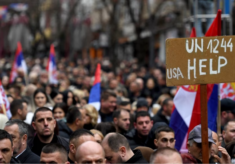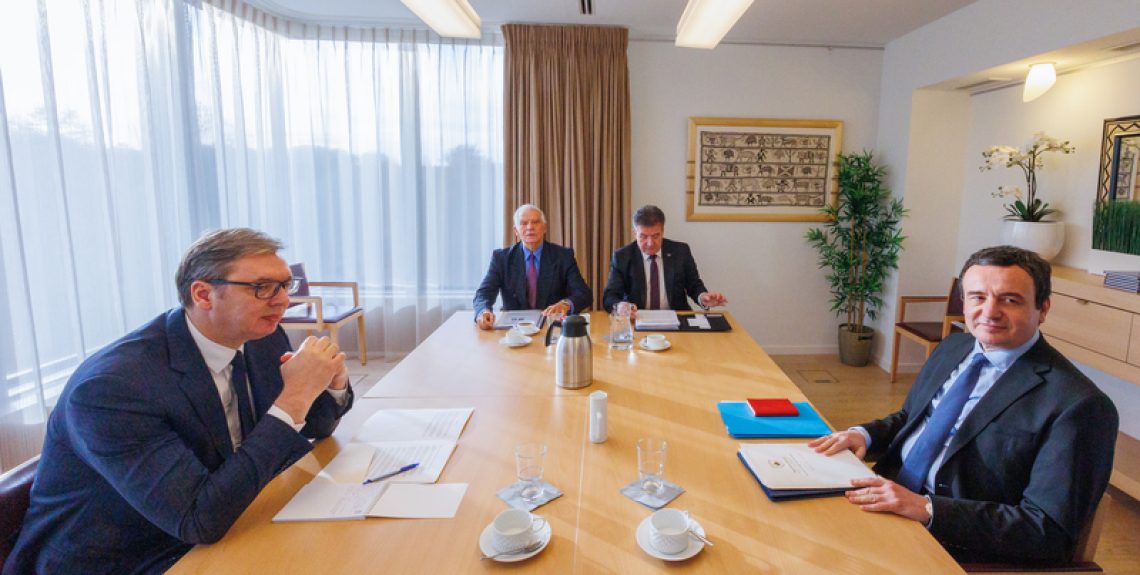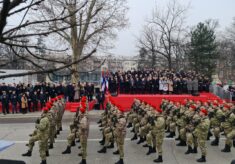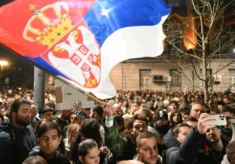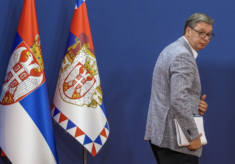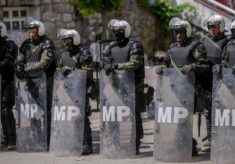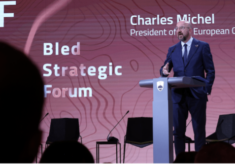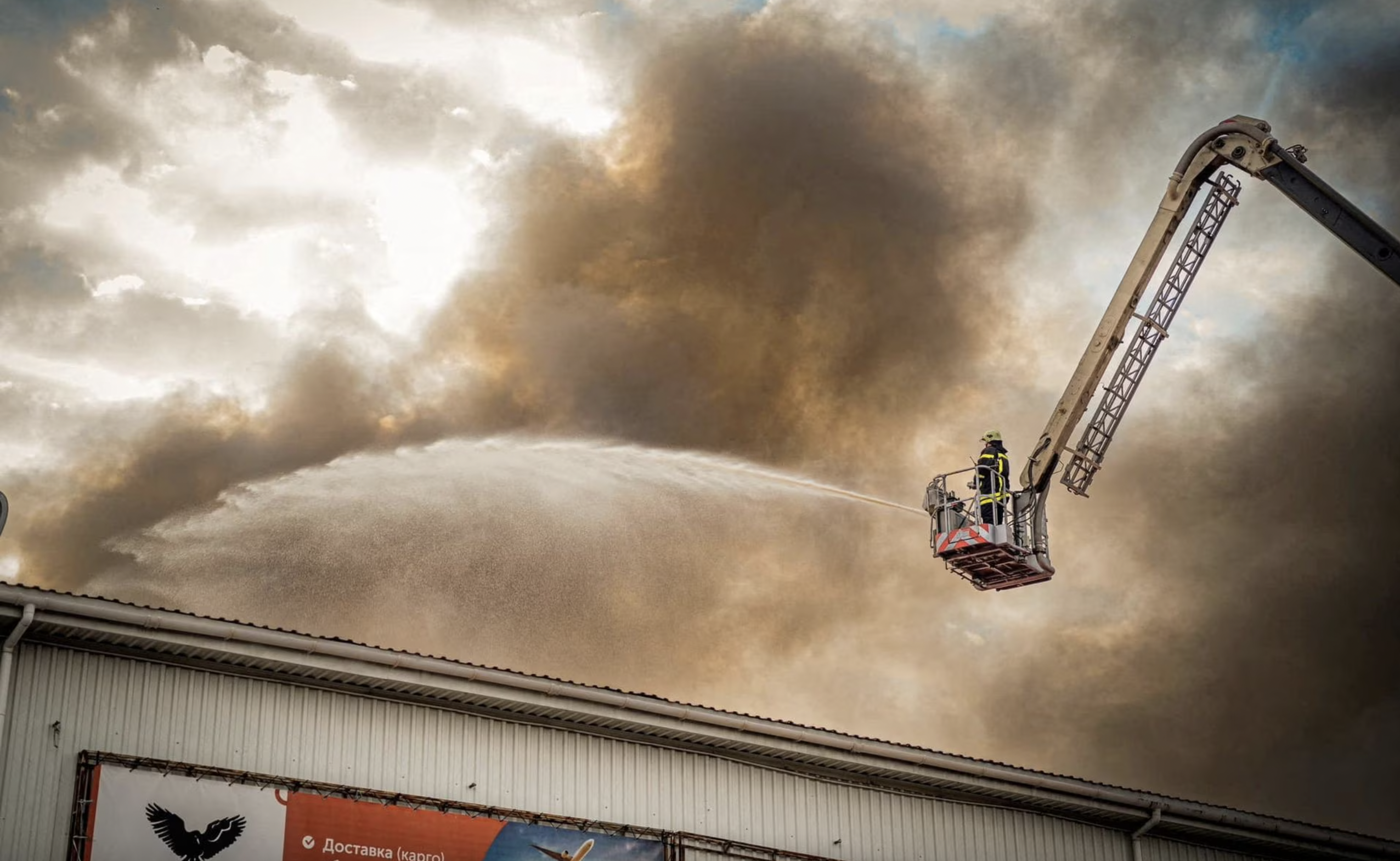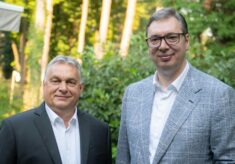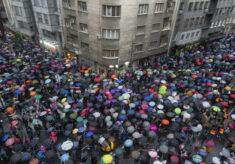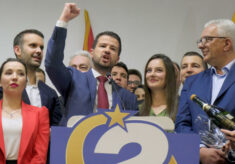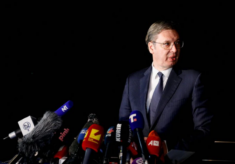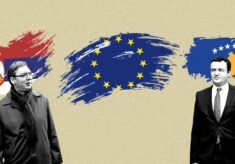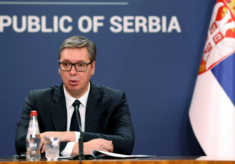One of the worst crises between Serbia and Kosovo, capable of escalating into a military confrontation, was defused at the last moment by the international community’s diplomatic intervention at the end of November. Although a dangerous escalation was luckily avoided, the situation demonstrates how urgent it is to find a permanent solution to Serbia-Kosovo relations.
The latest dispute between Belgrade and Pristina involved license plates. The Kosovan Government declared in November that approximately 10.000 Serbs from Kosovo, mostly living in Northern Kosovo and still driving cars with Serbian license plates, must replace them by April 2023 with plates from the Republic of Kosovo. The plan of the authorities in Pristina involved warnings, fines, and road bans. Serbs in northern Kosovo have long refused to acknowledge the Pristina’s authority over that part of Kosovo and have largely remained loyal to the Government in Belgrade.
Serbs from Kosovo and authorities in Belgrade reacted angrily because of the new car plate rules, as they saw the request to use Kosovo’s car plates as a push for an indirect recognition of Kosovo’s unilateral independence. As a reaction, a large number of Kosovo Serbs working in public administration resigned across northern Kosovo, including hundreds of police officers, judges, prosecutors, as well as MPs from the so-called Srpska Lista, that represents Serbian interests in Kosovo’s Parliament. The counterreaction amounted to the most serious step ever taken by Serbs in Kosovo in the last decade.
The license plates saga came just months after a dispute over travel documents, which sparked unrest in northern Kosovo, with Serbs erecting barricades on main roads. The November crisis was only the latest in a series of similar outbursts of tension. Everything goes back to the declaration of independence by Serbia’s former Albanian-majority province in 2008, the primary source of friction between the two countries. Kosovo declared independence from Serbia in 2008 and has been recognised by over 100 countries. However, Serbia maintains that the declaration is illegal and that Kosovo remains part of its territory. Russia and China support Belgrade’s position also at the UN level.
During the last crisis, Belgrade has warned that if Pristina tries to punish the Serbs in the north, it will not sit idly by. Serbia’s army announced that it had shot down a drone flying near its military base in the country’s southwest near Kosovo, implying that the drones were flown into Serbia from Kosovo. Belgrade’s leadership asked the army officials to increase the armed force’s ability to respond to an emergency.
The European Union has mobilised its diplomacy to resolve the ‘war’ over car license plates and avoid an escalation in the north of Kosovo, where the majority of Serbs lives, with little results. First, Kosovo Prime Minister Albin Kurti and Serbian President Aleksandar Vucic met in Brussels to discuss the issue. However, while Vucic was willing to accept a compromise, Kurti was not. Though, before the Kosovo police issued the first fines, a US diplomatic intervention managed to bring the escalation to a halt. Washington first asked Kosovo for a 48-hours delay. Soon after, new negotiations started. Subsequently, EU foreign policy chief Josep Borrell announced that Belgrade and Pristina had “agreed to measures to avoid further escalation.” Serbia agreed to stop issuing license plates with markings indicating Kosovo cities, and Kosovo agreed to stop any further actions related to vehicle re-registration.
Despite the de-escalation many issues have remained unsolved, including the return of Serbs to Kosovo’s police and judiciary and of the MPs of Srpska Lista to Kosovo’s Parliament, as well as the establishment of the association of Serb communities in Kosovo, a form of self-governance for the minority community which Kosovo opposes.
Furthermore, the EU is now pushing in a more intense way Belgrade and Pristina to continue the dialogue towards a final agreement on the ‘normalisation’ of their relations, which may involve some kind of reciprocal recognition as suggested by the French-German proposal, a step that Serbia refuses to take. According to Pristina, the agreement should be reached by Spring 2023, but there are currently no signals of a breakthrough.
